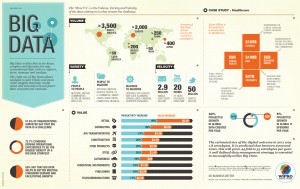A social enterprise is a business that applies commercial strategies that not only achieve sustainable profit but also maximize improvements in human and environmental well-being.
YWCA Hotel is one of the real life examples of a social enterprise. Ideally located in downtown Vancouver, the YWCA Hotel provides cosy and economical accommodation for all types of travellers. The daily rates begin as low as $65 per night during the winter months.

A Social Enterprise Hotel
Different from other commercial hotels, YWCA is a registered charity, providing a variety of integrated services for women and their families, and those seeking to improve life’s quality. YWCA aims generating revenue that sustains YWCA Metro Vancouver community service work to improve housing, health and fitness and employment services of the community. “Each year, more than 50,000 lives were touched by the YWCA.”
“Our mission is to touch lives and build better futures for women and their families through advocacy and integrated services that foster economic independence, wellness and equal opportunities.”

What you contribute by staying at YWCA:
- You create an opportunity for the YWCA Single Mothers’ Support Services program participant to attend a workshop that will help them to achieve personal and economic independence.
- You provide up to 15 meals to women and children in Vancouver’s Downtown Eastside. Each year, more than 28,000 plates of hot food are served to YWCA Crabtree program participants and their children.
Besides YWCA, there are many social enterprises exist in the market. For example, Fifteen, Amul and SEKEM. Social enterprise is a very good form of business as it helps society to achieve better sustainability.
Click on the link if you are interested in how to build your own social enterprise : http://www.enterprisingnonprofits.ca/enp-events-and-grants/workshops
YWCA video’s Youtube link: https://www.youtube.com/watch?v=EJKRR0onfIQ




 Initially, as a brand from nowhere, the Taiwanese mobile-phone firm has experienced a swift rise from anonymity to omnipresence after the releases of some good smartphones such as One X, HTC Touch, and the Sensation series. However, mentioned by Wilfred Loh, the revenue and profit of HTC has been plummeting after decreasing sales. The rationale of the sales drop is simple: HTC does not understand its customers.
Initially, as a brand from nowhere, the Taiwanese mobile-phone firm has experienced a swift rise from anonymity to omnipresence after the releases of some good smartphones such as One X, HTC Touch, and the Sensation series. However, mentioned by Wilfred Loh, the revenue and profit of HTC has been plummeting after decreasing sales. The rationale of the sales drop is simple: HTC does not understand its customers.

